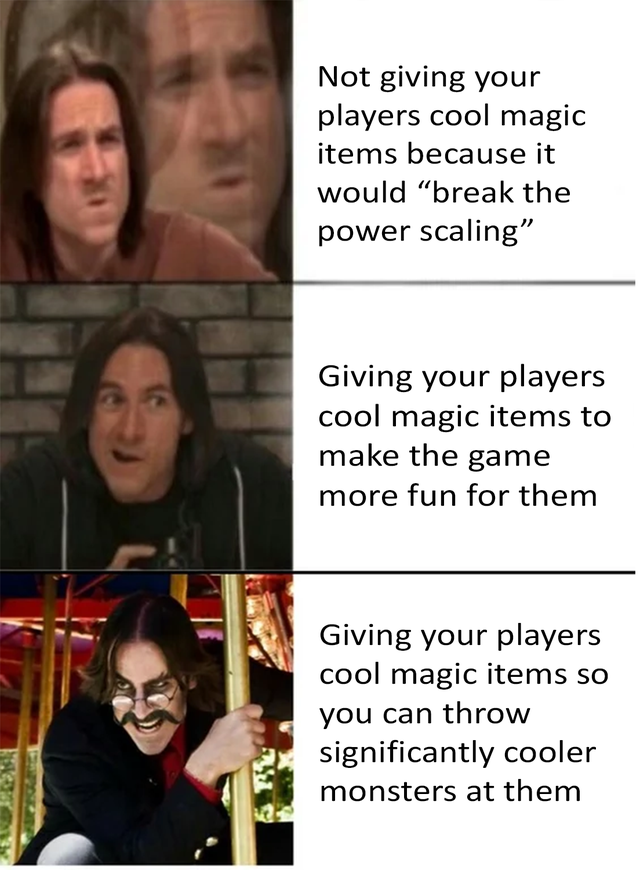this post was submitted on 03 Aug 2023
388 points (97.1% liked)
RPGMemes
13824 readers
1005 users here now
Humor, jokes, memes about TTRPGs
founded 2 years ago
MODERATORS
you are viewing a single comment's thread
view the rest of the comments
view the rest of the comments

Which is the point I was going to make! I still say it's on the GM to properly calibrate the story and/or player powers in the scenarios you outlined but overall I agree with you. I just think if a GM is trying to tell a very specific story/narrative then they should outline when each power rise occurs but that enters into railroading imo. Which at that point my advice would just be to write a book if they want THAT much control over the narrative since the players would have very little agency to alter the world around them. That's just not fun for most players I've ran games for, they always want that extra agency to get wild and as a GM it's always fun to see the unexpected and it keeps me on my toes.
GMs! Let your party be powerful if they figure out creative ways to achieve that power! It's more fun for everyone!